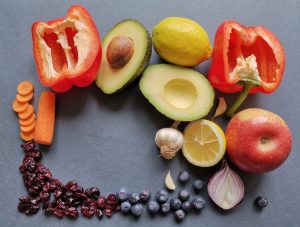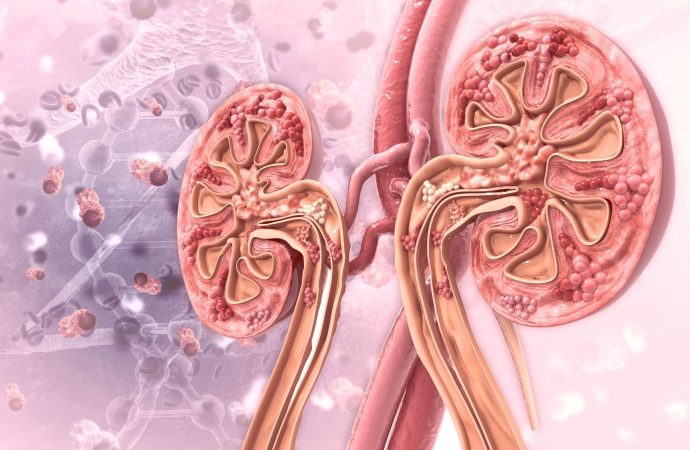The Importance of Nutrition for Kidney Health Nutrition plays a pivotal role in maintaining optimal kidney health. For individuals with kidney disease, managing diet becomes even more critical. Fruits and vegetables are cornerstone components of a kidney-friendly diet, offering a plethora of benefits that can help manage and improve kidney function. Explore The Other Health
The Importance of Nutrition for Kidney Health
Nutrition plays a pivotal role in maintaining optimal kidney health. For individuals with kidney disease, managing diet becomes even more critical. Fruits and vegetables are cornerstone components of a kidney-friendly diet, offering a plethora of benefits that can help manage and improve kidney function. Explore The Other Health Solution What To Do If You Have Concussion
Nutrient-Rich Fruits and Vegetables
Incorporating a variety of fruits and vegetables into one’s diet provides essential nutrients such as vitamins, minerals, fiber, and antioxidants. These nutrients are vital for supporting overall health and well-being, including kidney function.
Fruits for Kidney Disease
Berries: Berries like strawberries, blueberries, and raspberries are rich in antioxidants, particularly anthocyanins, which have anti-inflammatory properties beneficial for kidney health.
Apples: High in fiber and low in potassium, apples are an excellent choice for individuals with kidney disease. The soluble fiber in apples can help lower cholesterol levels and regulate blood sugar levels.
Watermelon: With its high water content, watermelon is hydrating and low in potassium, making it a refreshing and kidney-friendly fruit option.

Image by: yendex.com
Vegetables for Kidney Health
Leafy Greens: Spinach, kale, and Swiss chard are packed with vitamins A, C, and K, as well as magnesium and iron. However, for individuals with kidney disease, it’s essential to monitor potassium intake, so portion control is crucial.
Cabbage: Cabbage is low in potassium and an excellent source of vitamin K and fiber, making it a kidney-friendly vegetable choice.
Bell Peppers: Rich in vitamin C and low in potassium, bell peppers add color and flavor to meals while providing essential nutrients beneficial for kidney health.
Managing Kidney Disease Through Diet
A well-balanced diet that includes plenty of fruits and vegetables can help manage kidney disease and its symptoms. Here are some dietary tips for individuals with kidney disease:
Limit Sodium Intake
Excessive sodium consumption can lead to fluid retention and high blood pressure, which can exacerbate kidney disease. Opt for fresh or frozen fruits and vegetables over canned varieties, as they tend to be lower in sodium.
Monitor Phosphorus and Potassium Levels
Individuals with kidney disease may need to restrict their intake of phosphorus and potassium, as impaired kidney function can lead to imbalances in these minerals. Choose fruits and vegetables that are lower in potassium, and consider cooking methods such as boiling or leaching to reduce potassium content further.
Stay Hydrated
Proper hydration is essential for kidney health. Water is the best beverage choice, but other options like herbal tea and diluted fruit juices can also contribute to hydration.

Image by: yendex.com
Seek Professional Guidance
Consulting with a registered dietitian who specializes in kidney health can provide personalized dietary recommendations tailored to individual needs and medical history.
Fruits and Vegetables for Kidney Disease Health
| Fruits | Antioxidants | Fiber Content | Potassium Level | Hydration |
|---|---|---|---|---|
| Berries | High | High | Low | Moderate |
| Apples | Moderate | High | Low | Low |
| Watermelon | Moderate | High | Low | High |
| Leafy Greens | Moderate | High | Moderate | High |
| Cabbage | Low | High | Low | Moderate |
| Bell Peppers | Low | Moderate | Low | Moderate |
Conclusion
Incorporating more fruits and vegetables into your diet can have significant benefits for kidney health, even for individuals managing kidney disease. By prioritizing nutrient-rich foods and following dietary guidelines, individuals can support kidney function and overall well-being. Remember to consult with a healthcare professional or registered dietitian for personalized dietary advice based on individual health needs and medical history.




















